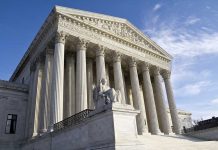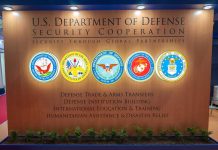
South Korea’s President Yoon Suk Yeol’s attempt to declare martial law was swiftly blocked by parliament, triggering protests and economic instability.
At a Glance
- President Yoon declared martial law, citing threats to democracy
- Parliament voted unanimously to lift the declaration, deeming it “invalid”
- Protesters gathered near parliament, blocking military vehicles
- The Korean won fell sharply, prompting economic stabilization measures
- U.S. expressed “grave concern,” urging peaceful resolution
Unprecedented Martial Law Declaration
In a shocking move, South Korean President Yoon Suk Yeol declared martial law, marking the first such declaration since the nation’s dictatorship era over four decades ago. The president justified this extreme measure by alleging the presence of anti-state activities within the parliamentary sphere, claiming it was necessary to safeguard the nation from perceived threats. However, this decision was met with immediate and forceful opposition from both the public and political spheres.
The declaration raised serious concerns about a potential return to heavy-handed tactics reminiscent of past dictatorships. South Korea’s history of military intervention in civilian affairs remains a sensitive issue since the country’s transition to democracy in the late 1980s. President Yoon’s move was seen by many as a dangerous step backward for the nation’s hard-won democratic institutions.
Swift Parliamentary Response
The National Assembly, South Korea’s parliament, acted decisively to counter the president’s declaration. In an extraordinary session, all 190 participating members voted unanimously to lift the martial law order, effectively nullifying it. This robust response underscored the legislature’s commitment to maintaining democratic norms and its refusal to acquiesce to what many viewed as an overreach of executive power.
“This declaration is illegal and constitutes a criminal act, directly violating the Constitution and other laws,” said the opposition Democratic Party.
BREAKING: South Korea's parliament votes 190-0 to lift martial law pic.twitter.com/08Sf0HHZ0C
— BNO News (@BNONews) December 3, 2024
The opposition party went further, condemning the declaration as “essentially a coup d’état.” Even members of Yoon’s own conservative party criticized the move as undemocratic, highlighting the broad-based rejection of the president’s actions across the political spectrum.
Public Outcry and Economic Impact
The martial law declaration sparked immediate public protests. Citizens gathered near the parliament building, physically blocking military vehicles in a show of resistance against what they perceived as an assault on their democratic rights. These demonstrations underscored the deep-rooted commitment to democratic values among the South Korean populace.
The political crisis had immediate economic repercussions. The Korean won fell sharply against the U.S. dollar, prompting the central bank to prepare stabilization measures. The government announced plans for financial interventions, including unlimited liquidity injections, to address the economic fallout from the political turmoil.
International Reaction
The United States, South Korea’s key ally, expressed “grave concern” over the situation. U.S. Deputy Secretary of State Kurt Campbell emphasized the strong alliance between the two nations while urging a peaceful resolution to the political dispute.
“We stand by Korea in their time of uncertainty,” said Campbell.
The international community watched closely as the crisis unfolded, recognizing the potential implications for regional stability and South Korea’s standing as a democratic leader in Asia.
Underlying Political Tensions
This crisis occurs against a backdrop of ongoing political challenges for President Yoon. With low approval ratings and an opposition-controlled parliament, Yoon has struggled to implement his policy agenda. His accusation of pro-North Korean forces plotting against South Korea’s democracy, made without providing direct evidence, has been viewed by critics as an attempt to consolidate power and sideline political opponents.
As South Korea navigates this tumultuous period, the resilience of its democratic institutions has been put to the test. The swift and decisive action by parliament to check executive overreach demonstrates the strength of the country’s democratic safeguards. However, the incident has also exposed deep political divisions that will likely continue to shape South Korean politics in the coming months.









